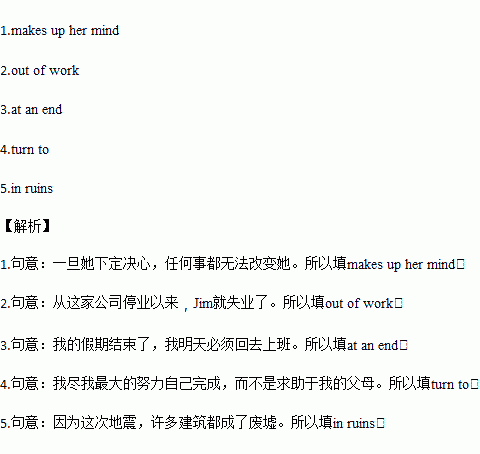题目内容

1.Once she ________, nothing can change her.
2.Jim has been ________ since the company closed down.
3.My holiday is ________and I must go back to work tomorrow.
4.I tried my best to do it myself rather than ________my parents.
5.Many buildings are ________ because of the earthquake.
练习册系列答案
 名校课堂系列答案
名校课堂系列答案
相关题目

